10 Latest IT Skills Employers Want You To Have in 2021
According to a recent study conducted by Training Journal and Workable, 91% of companies reported that both upskilling and reskilling training has increased their overall productivity and performance. With the pandemic still on the loose and the economy taking a record plunge, job security is slowly dwindling for most professionals. However, the IT industry did not slow down, due to the booming demand for IT solutions in the post-COVID world.
As the industry is set to wield its redefined impact on the world, IT professionals need to keep up and develop the latest skills to stay relevant. Here are the 10 latest IT skills that employers want you to have in 2021.
The Pandemic and the IT Industry
With organizations switching to remote operations, the world has taken refuge in IT solutions. The industry is expected to attain a value of $295 million by 2025, due to the ongoing boom spawned by the pandemic.
There is a growing need for 5G technology, the development of telehealth has accelerated, e-commerce is booming, and remote working and learning has replaced traditional ways of working and learning; the list of pandemic-induced developments in the IT landscape is endless.
With new developments come new demands for skills. The best IT professionals can do at this historic juncture is anticipate what might happen in the labor market and think beyond basic IT skills. This includes keeping up with industry trends, staying abreast of developments, and, most importantly, acquiring the latest IT skills for your resume.
10 Latest IT Skills To Nail in 2021
To be competitive and to gain an edge over the growing competition in the IT industry, professionals should actively seek the following in-demand skills:
1) Project Management
As most companies have already shifted to project-based routines, project management has become one of the most important skills in IT ecosystems. Though this profession is not restricted to IT, it has become a very important role within IT environments. With project management, a project team gains clarity, a sense of direction, and accountability.
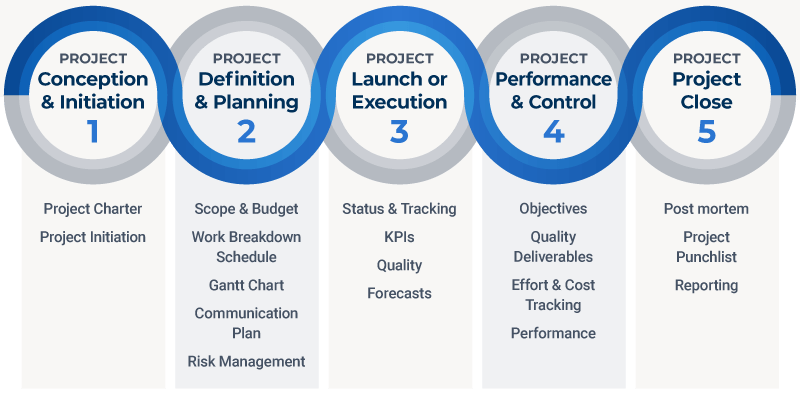
Source: Smartsheet
What does a project manager do? A project manager ensures that there is a solid, realistic plan to execute a project within time and budget constraints. They hold the reins to drive the timely completion of tasks by compartmentalizing the entire project into different tasks. Project managers use their foresight and top-notch management skills to keep the projected trajectory in check, mitigate risks, improve quality, and, most importantly, align the goals of the project with the organization’s business objectives.
2) Cybersecurity
No organization wants to be an easy target of cybercriminals. As we now have a plethora of cybercrimes that did not exist a decade ago, the significance of cybersecurity skills has risen. A basic firewall or an antivirus can no longer guarantee you protection from new-age cybercrimes.
Cybersecurity acts as a strong shield against data breaches; it protects all data categories from potential cybersecurity threats and thefts. What does a cybersecurity professional do? He or she guards and recovers important systems, devices, and networks, from cyber attacks. Some of the most vulnerable categories of data include personal information, sensitive data, intellectual property, Protected Health Information (PHI), Personally Identifiable Information (PII), governmental information systems, and industry information systems.
3) Cloud Computing
Cloud computing is a prominent business model that has revolutionized the IT industry. Not only has it redefined data storage and access, but it has also transformed the way businesses handle their operations.
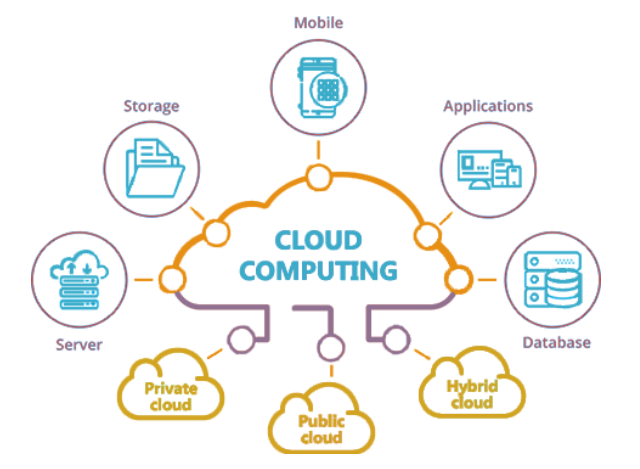
Source: Medium
In cloud computing, networks, servers, applications, development tools, and storage are facilitated using the internet. It provides easy access to data, flexibility, great security, and requires little to no maintenance. Before the advent of cloud computing, companies had to store large amounts of data on their own servers or hard drives. With cloud computing technology, they have a more scalable and efficient way of storing their information at lower costs.
The pandemic has boosted the growth of cloud computing by several folds as small-, medium-, and large-scale organizations are now embracing end-to-end digital transformations. If you are keen on starting a career in cloud computing, get started with top-paying cloud computing certifications.
4) Data Science
Data is the new oil; it is a valuable commodity dominating business and marketing trends. This is why organizations have put data-driven decision-making on a pedestal. If you are looking to kick start your career in Data Science, now is the right time. Data science is one of the fastest-growing industries in the world, today. It leverages data to make critical decisions by turning raw data into actionable insights.
Data scientists are professionals who have top-notch skills in mathematics, programming, and statistics. They wrangle a pool of data to extract meaningful insights and empower organizations to make decisions from these inferences. They are adept at identifying business gaps and bridging them with data.
5) Software Development
Why is software development so disruptive? What places it in the latest IT skills list? Every application you use and every website you visit is the fruit of a software developer’s labor. As more of the world becomes digital with every passing day, the demand for quality software solutions is growing exponentially.
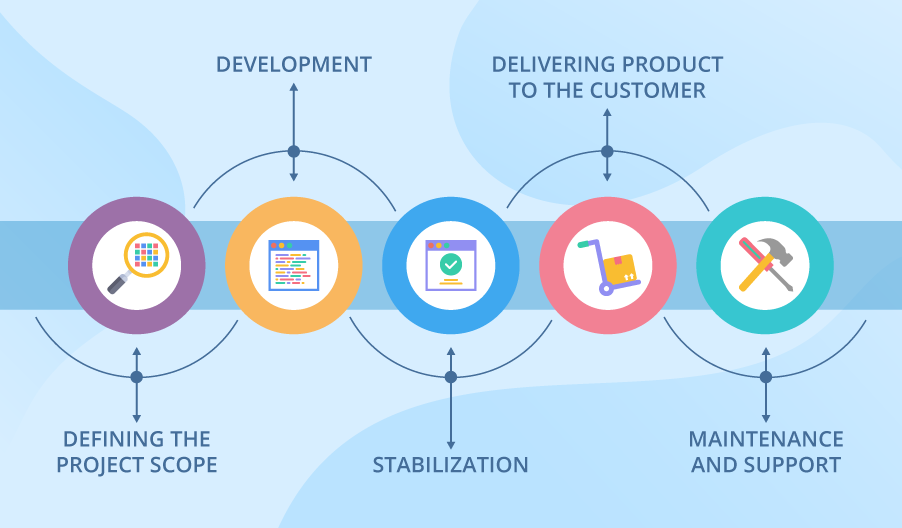
Source: ScienceSoft
A software developer is an important IT professional who focuses on the development, coding, and creation of software. They combine their skills of design, programming, research, and testing to come up with innovative software solutions. With quality software development, organizations’ tedious workflows can be automated, helping them adapt to technological revolutions. Software development affects all aspects of our digital life. Today, almost all industries, businesses, and functions are dependent on very specific software. This is why software developers are one of the most sought-after professionals in the industry.
6) Artificial Intelligence (AI)
As AI slowly takes over the world, the capabilities that once touted to be possessed by only humans are now mimicked by machines. From having conversations with humans to performing complex tasks, such as pattern detection in data, AI carves new opportunities in business sectors. Today, a myriad of products and services in the IT industry are powered by this technology. It powers corporate revenue growth and increases cost savings.
AI is at the heart of solving complex technical problems. It unlocks new opportunities for growth, improvement, and innovations. The future of the IT industry can no longer be envisioned without the disruptive technologies of AI. As more and more business operations are leveraging AI to streamline operations, it is safe to say that it has gained its reputation as one of the top latest IT skills worth having.
7) Augmented Reality and Virtual Reality
What makes augmented reality (AR) and virtual reality (VR) two important latest IT skills? What are their contributions to the ever-changing IT landscape? Both AR and VR offer an enriched experience that combines the real world with the virtual world. They enhance what we see using three-dimensional visuals.
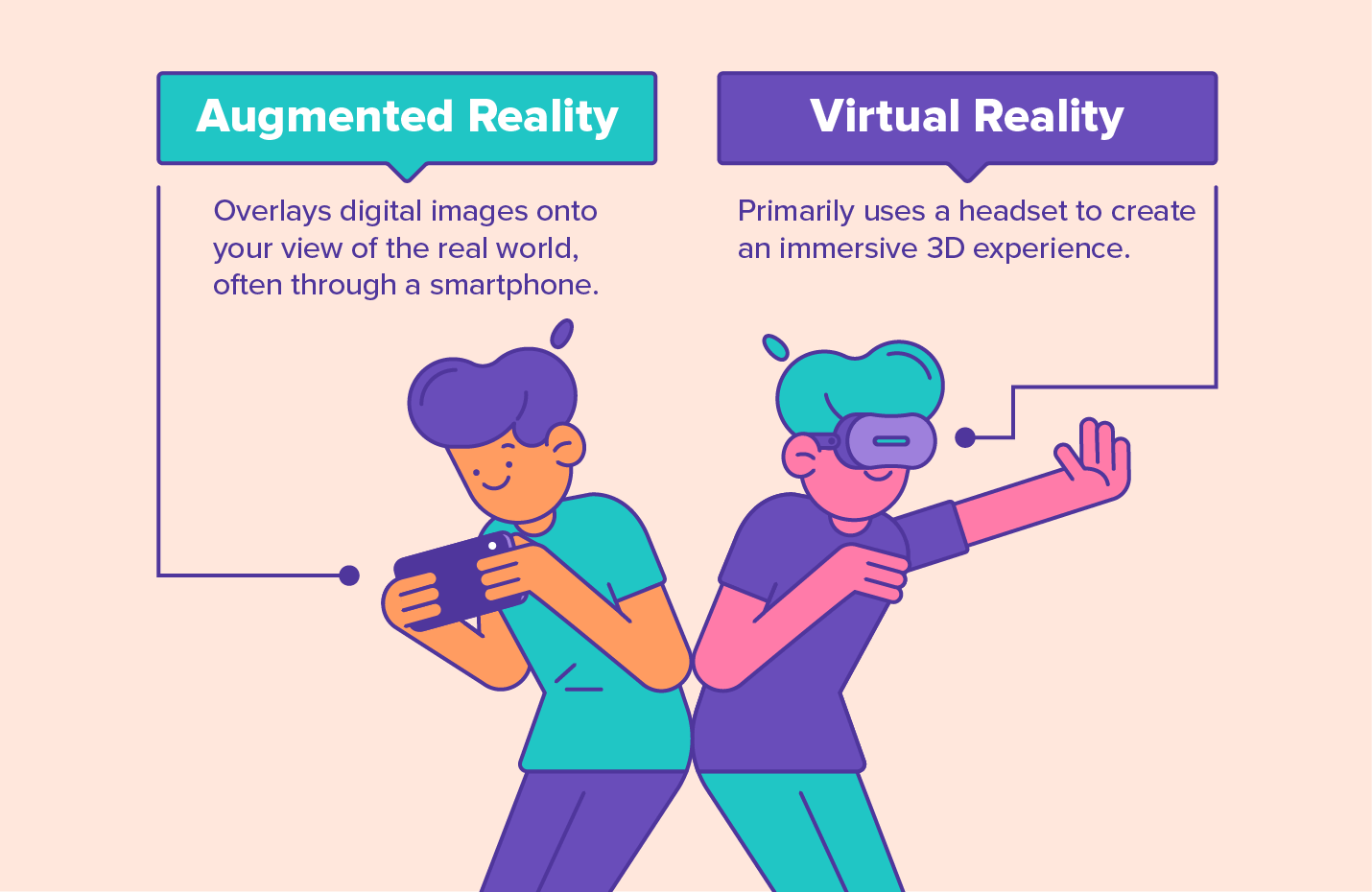
Source: CleverTap
AR transforms our real physical world into a visually appealing world using virtual characters and pictures. It adds some additional elements to our world to make it more exciting. VR, on the other hand, creates an alternate world with extremely immersive simulations.
Both AR and VR have great potential and applications in e-commerce, gaming, education, marketing, and more. By 2022, the AR and VR market is set to achieve a value of $209.1 billion.
8) Edge Computing
Edge computing is an extension of cloud computing, but it delivers services from any location that meets the performance requirements. Edge computing lowers data transport requirements. Its development was a response to the high latency and low resilience of other storage technologies.
The technology minimizes the cost of data bandwidth, reinforces security, keeps data storage proliferation at bay, and simplifies maintenance. Edge computing is an important development in the hybrid cloud computing model that is about to transform the IT landscape. It is definitely worth learning edge computing as it is set to become one of the most prominent latest IT skills.
9) Quantum Computing
Why do we need quantum computing? What makes it one of the most talked-about entries on the latest IT skills list? Quantum computing emerged in 1994 when Peter Shor, a mathematician, developed a quantum algorithm that he used to easily find prime factors of large numbers. Today, both classical and quantum computers try to solve the same kind of problems.
Supercomputers cannot comprehend or work through the complex combinations in our real-world problems. Quantum computers leverage quantum mechanics to solve certain computational challenges that even supercomputers cannot tackle. They develop multi-dimensional spaces to accommodate and represent these problems.
10) Blockchain
Blockchain technology is rapidly developing, as it strengthens the global storage of data. It is very different from a typical database that stores information. Blockchain is a specific kind of database that stores data in blocks, which are then chained together in chronological order. When implemented in a decentralized manner, this timeline is irreversible. Though different kinds of data can be stored this way, the most common application of this technology is in transactions, where it acts as a ledger.
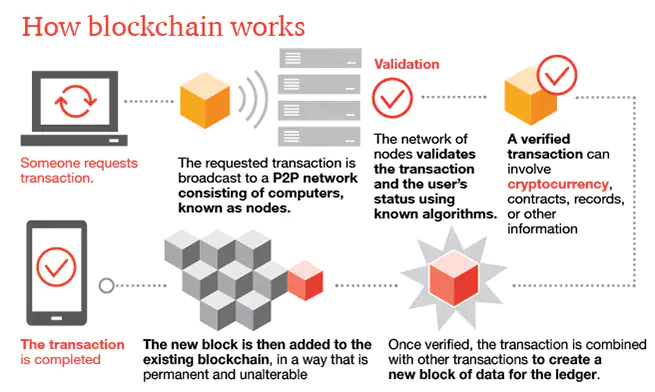
Source: PwC
Presently, there are a number of blockchain projects attempting to expand the possibilities of this technology. They are looking to apply the cutting-edge technologies of blockchain to help society. If you are looking to stay relevant in the IT industry, get started with learning the ins and outs of blockchain.
Though the list might be slightly overwhelming, creating a solid plan and an effective career roadmap will help you establish yourself as an employable IT professional. Analyze your current IT skills, and then identify and understand your shortcomings. Do not overlook the importance of upskilling. Remember that it is never too late to add new certifications to your resume.
Want To Acquire the Latest IT Skills? Join a Bootcamp Today!
